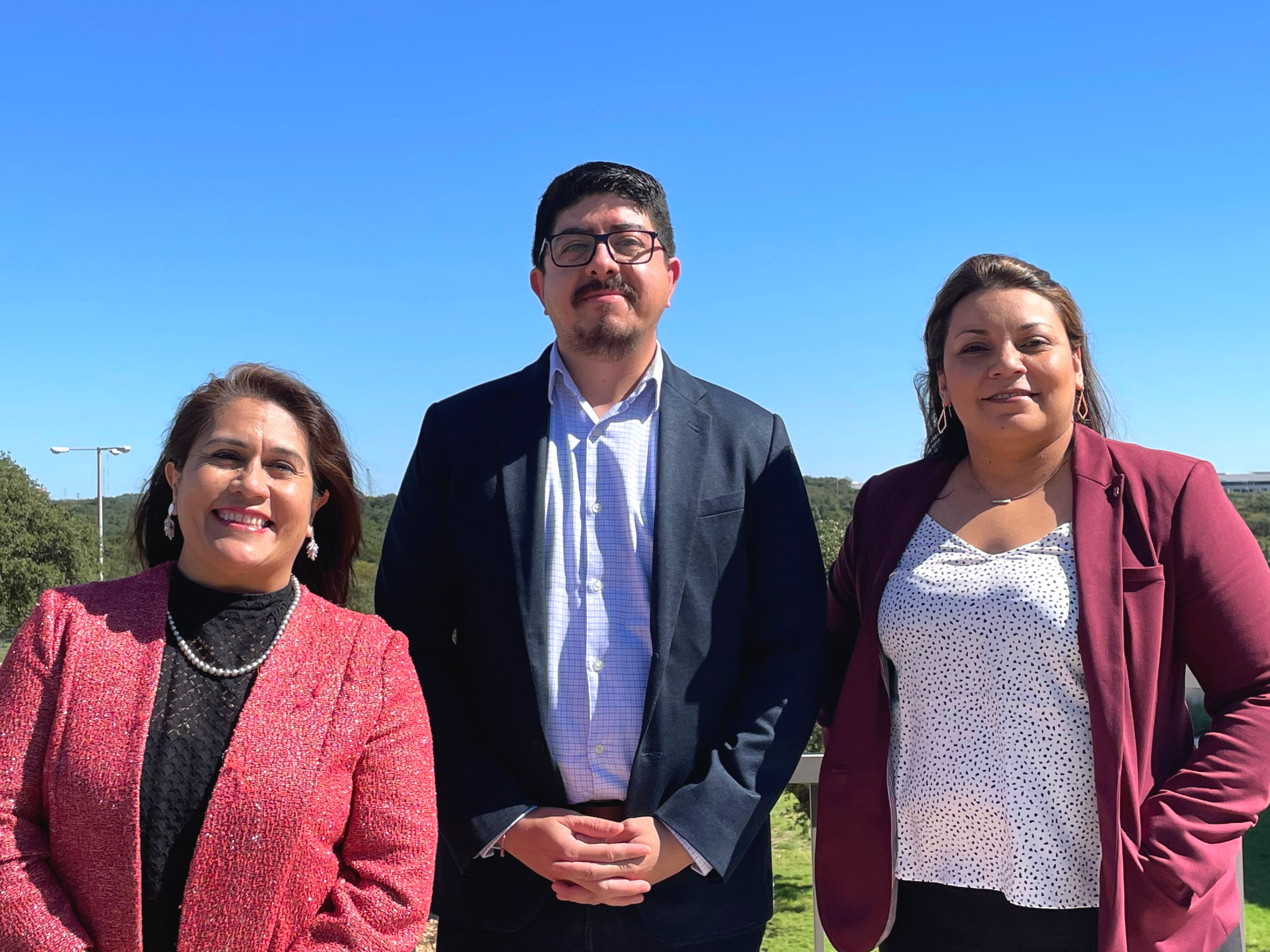October 28, 2021 – UTSA’s engineering education program continues to honor the foundational commitment to educational accessibility, particularly for those from historically underrepresented communities. The program, housed in the Department of Biomedical Engineering and Chemical Engineering, currently comprises of three faculty members who are leading researchers and influential voices in the growing field of engineering education. Engineering education faculty are joint-appointed by the College of Engineering and Integrated Design (CEID) and the College of Education and Human Development (COEHD).
Program Director and Microsoft President’s Endowed Professor, Dr. Araceli Martinez Ortiz, joined UTSA with the express goal of developing a robust engineering education program to produce engineering educators who can foster interest and develop relevant skills in students throughout San Antonio, South Texas and the nation. “In my unique role as a professor of engineering education, it is my privilege to motivate students to recognize their potential and to guide them in developing their talent towards joining the engineering profession, armed with the power to positively impact their communities and the world,” said Dr. Martinez Ortiz.
Prior to joining UTSA, Dr. Martinez Ortiz served as the Executive Director of the LBJ Institute for STEM Education and Research and as a research professor at Texas State University. With a specialization in teaching and learning approaches that support students’ academic journeys—including deeper comprehension of engineering concepts of interest, and professional development of engineering educators—Dr. Martinez Ortiz is recognized as a national leader in intervention and research efforts. In addition, her efforts support women and other historically underrepresented populations in engineering programs at the K-20 level. Her recent research has attracted more than $37 million of grant funding over the previous 8 years from the National Science Foundation, the U.S. Department of Agriculture, the Department of Education, NASA, and others. She also works with NASA’s Office of STEM Engagement to advise on approaches to broaden the participation of students from minority serving institutions in NASA’s many outreach and educational efforts with students of all ages.
Dr. Alex Mejia is an NSF Career Award winner with a specialization in researching bicultural and bilingual STEM education, including the approaches that contribute to a more expansive understanding of engineering in sociocultural contexts, the impact of critical consciousness in engineering practice, and the development and implementation of culturally responsive pedagogies in engineering education. Dr. Mejia has consulted with the Public Broadcasting Service (PBS) to develop Spanish speaking outreach and programming.
Dr. Karina Vielma’s research addresses challenges of equity and access to engineering fields, particularly as students foster engineering identities and gain mathematics skills for their future coursework. Her research focuses on connecting all students, especially underrepresented students, to best practices for learning and succeeding in engineering. These best practices include positive engineering identity development, research experiences, mentoring, and confidence in mathematical skills. She uses mixed methodologies to help expand the knowledge that aims to challenge and solve critical issues of access and equity.
UTSA currently offers two graduate certificates in Engineering Education. The Engineering Education Certificate is a nine credit hour curriculum with emphasis on engineering curriculum development, instruction and assessment methods to support student learning outcomes. The Career Technology and Engineering Teaching (CTET) Certificate, when combined with the Engineering Education Certificate, offers a certification pathway for teachers who wish to become Career Technical Education (CTE) educators to teach dual credit engineering courses in high schools or community colleges by meeting the 18-semester credit hour eligibility requirement to teach dual credit classes.
The engineering education faculty is actively working towards offering a Master of Science degree program with a focus on engineering education. The M.S. program will offer students a platform to expand their teaching skills and to develop research and grant proposal skills which can open doors to engagement with multi-institutional research initiatives. The proposed start date for the inaugural cohort is Fall 2022.
As San Antonio, and South Texas, continues to grow at a rate far exceeding much of the US, the demand for engineers and engineering educators will continually increase. A significant workforce of well-prepared and engaged engineering educational professionals will be imperative to meet the growing needs of our region.


